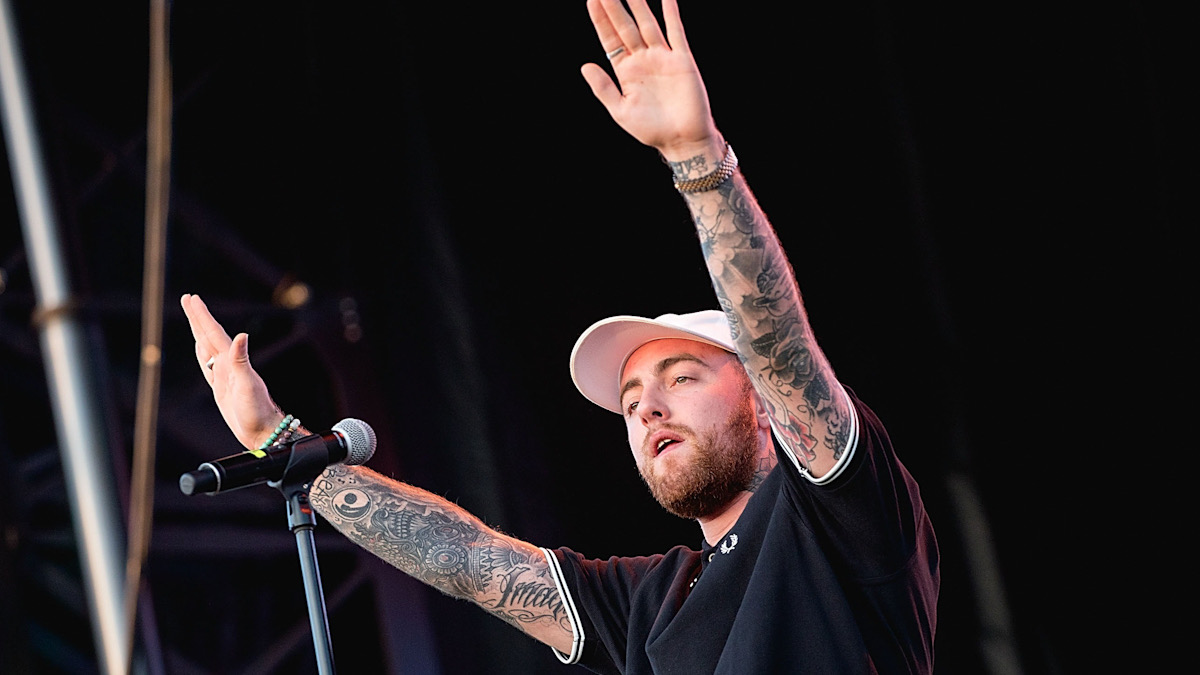Mac Miller, born Malcolm James McCormick, was widely considered to be one of the most promising up-and-coming performers in the world of hip-hop. His raw lyrics spoke to a generation, and his open struggles with mental health and substance abuse resonated with listeners since his first self-produced album, K.I.D.S released in 2007. Three short years later Miller’s debut studio album, Blue Side Park rocketed to the top of Billboard 100 and he was collaborating with some of the biggest names in the music world. Miller partnered with Ariana Grande, Post Malone, The Weekend, Ty Dolla $ign and so many more. His tragically young death at the age of 26 robbed his fans of a lifetime of music, and Miller of the opportunity to heal.
Mac Miller’s start
Miller described his early work as “fratrap,” but over the years his lighthearted party vibe was replaced. In hindsight, Miller’s struggles are openly displayed and often referenced in his music. His party rap shifted over time, turning to sardonic lyrics referencing his declining mental health. In “Come Back to Earth” on the album Swimming Miller raps,
“In my own way, this feel like living / Some alternate reality / And I was drowning, but now I’m swimming / Through stressful waters to relief / Oh, the things I’d do / To spend a little time in hell / And what I won’t tell you / I’ll probably never even tell myself / And don’t you know that sunshine don’t feel right / When you inside all day / I wish it was nice out, but it looked like rain / Grey skies and I’m drifting, not living forever / They told me it only gets better.”
Miller frequently talked about staying inside, overworking, and his growing insomnia. He frequently referenced drug use, and his reliance on substances would be his ultimate downfall. His drug use frightened him, and he confessed to fearing for his life due to his drug use, “It just eats at your mind, doing drugs every single day, every second. It’s rough on your body. That was the plan with Faces’, ‘Grand Finale’ [it] was supposed to be the last song I made on earth. I don’t feel that way as much anymore.”
Mac Miller’s Death
Miller was found dead in his San Fernando Valley home on 7 September 2018. His personal assistant walked in to find him unresponsive and performed CPR until paramedics arrived, despite their effort, Miller was pronounced dead at the scene. The Los Angeles County Coroner’s Office determined that Miller had accidentally overdosed due to “Mixed drug toxicity”, and found a lethal combination of fentanyl, cocaine, and alcohol during their autopsy. Miller was preoccupied with his legacy, and told Billboard in 2015 that he was worried he wasn’t living his life, “I was too worried about the legacy that I would leave behind — how I would be remembered if I died,” he confessed. “…I’ve got to make sure I make all this music so when I die there’s albums and albums. But now, I’m going to make sure I do some sh** in life, too.”
After a yearlong investigation, three men were arrested in connection to Miller’s death. The dealer, Cameron Pettit, and the runners, Ryan Reavis and Stephen Walter. The rapper had contacted the dealers for Percocet, a severe pain reliever, but was given counterfeit oxycodone pills laced with fentanyl instead. Investigators believe that Miller crushed and snorted the laced drugs, resulting in his death. Per the New York Times, Pettit messaged a friend the day after Miller’s overdose saying, “Most likely I will die in Jail.” Pettit’s trial has yet to pass, but both drug runners have already been sentenced. Both defendants plead guilty to the charges, and as of 2022, Reavis and Walter have been convicted of conspiracy and distribution of drugs resulting in death. Reavis was sentenced to 10 years, and Walter 17 ½. If convicted, Pettit could spend up to 20 years in prison.
Miller is yet another victim of the Opioid Epidemic sweeping the nation. Tom Petty, Lil Peep, Philip Seymour Hoffman, and Prince also died of drug overdoses in the last decade. The growing number of accidental overdoses involve fentanyl, which is often mixed into cocaine, heroin, and methamphetamines on the black market. 2021 saw the accidental overdoes death count rise nearly 12% to nearly 225,000 people, with 7 out of 10 deaths befalling males.

